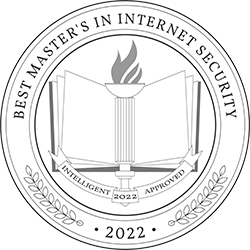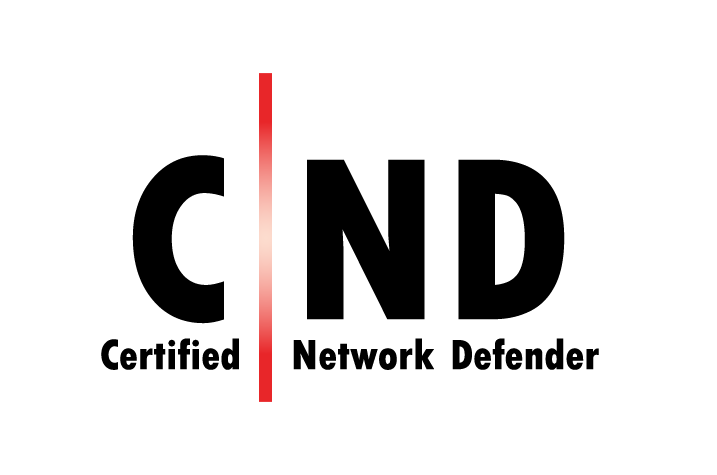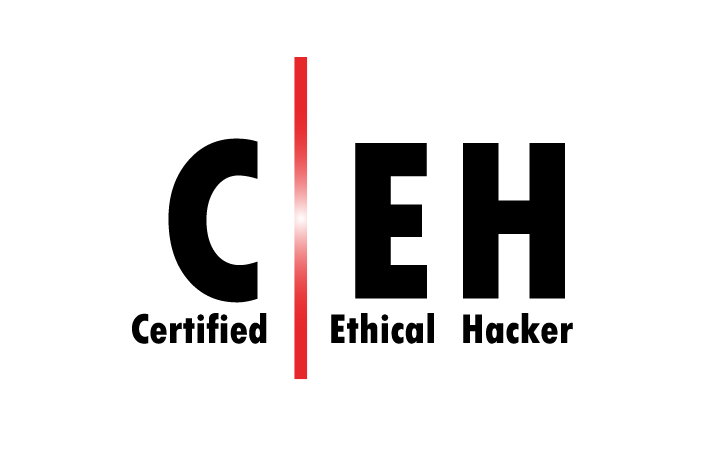- About Us
-
- Online Degrees
- Services
-
-
Information
-
Benefits
-
Forms
-
-
- Financial Assistance
- Veterans
- Updates
"*" indicates required fields
The Cloud Security Architect specialization focuses on planning, analyzing, designing, configuring, testing, implementing, maintaining, and supporting an organization’s on-premise and cloud security infrastructure.
The Cloud Security Architect specialization trains you to harden enterprise architecture and cloud architecture from the most advanced attacks and secure programming practices to overcome these inherent drawbacks to pre-empt bugs from the code and designing and implementing cloud security.
Graduate
12 (36 Credit Hours)
2 Years – 10-week terms (4 per year)
6th Oct, 2025
Online (Flexible with Hands-On Experience)
EC-Council University has been ranked in the “Top 45 Online Master’s in Internet Security Degree Programs” by Intelligent.com, highlighting our high standards of quality postsecondary education.

| Certifications | Master’ Degree Courses | EC-Council Examination Price | ECCU Student Price |
 | ECCU 500 Managing Secure Network Systems | $350 + $100 Application Fee | Included in the Program |
 | ECCU 501 Ethical Hacking & Countermeasures | $950 + $100 Application Fee | Included in the Program |
 | ECCU 510 Secure Programming | $350 + $100 Application Fee | Included in the Program |
Ans. A cloud architect is responsible for conversion of the technical requirements of a project into architectural designs that can then be used as a guide for the final product. They are required to bridge the gap between complex business problems and solutions. To become a cloud architect, candidates need to have a strong cloud computing background or something similar to it.
Ans. Cybersecurity aspirants who wish to join the cyber workforce as a cloud security architect can opt for a Master of Science in Cyber Security (MSCS) degree with a specialization in Cloud Security Architect from EC-Council University. The degree has been designed to help candidates gain skills to help them grow and succeed.
Ans. According to PayScale, the average salary of a security architect in the United States is $124,213. Whereas, a Security Architect, IT with Cloud Computing skills can earn an average salary of $139,166 in the US. Their salary can range between $97,000 and $182,000.
Disclaimer – EC-Council University does not guarantee jobs or salary packages mentioned -above. Please refer to the sources mentioned to learn more.
Ans. To become a cloud architect, cybersecurity aspirants should ideally have a strong background in cloud computing or something similar. Here are some skills that will help them in their journey as a cloud security architect – computer programming languages, digital security skills, good understanding of networking and knowledge of at least one operating system.
This course focuses on the fundamental areas of fortifying your defenses by discovering methods of developing a secure baseline and how to harden your enterprise architecture from the most advanced attacks. It provides segmentation and isolation to reduce the effectiveness of advanced persistent threats.
This course provides comprehensive knowledge of cloud services, as well as their characteristics, benefits, applications, and service models. It covers planning, designing, and implementing cloud security controls. It delves into various cloud standards, countermeasures, and best practices to secure information in the cloud. The program also emphasizes the business aspects of cloud security such as cloud uptime, uptime guarantee, availability, fault tolerance, failover policy, and how cloud security strengthens the business case for cloud adoption.
The sole benefit of cloud computing is to reduce operating costs and increase efficiency by getting rid of on-premise servers. However, poor cloud security practices make your environment vulnerable to threats like ransomware, denial of service, data breach, and various other malicious activities.
This course focuses on how to best manage the risk in your cloud environments. It includes data protection, types of service models for cloud services, the right procedure for every deployment model, and dimensions of cloud security through theories and hands-on experience. Further, it teaches you to manage, configure, and implement cloud security services for a majority of available platforms.
By the end of this course, you will be equipped with IT security skills––such as password management, role management, encryption, auditing, application control, access control, and centralized security monitoring––and will be able to leverage these skills to your advantage.
Certified Application Security Engineer (CASE) is a hands-on, Instructor-led, comprehensive application security course, which encompasses security activities involved in all of the phases of the Software Development Lifecycle (SDLC). The course also focuses on selecting and implementing the right security strategies, guidelines, and practices that are widely accepted and applicable to most environments used today.
The Capstone is the summative experience designed to allow students to demonstrate all program outcomes and draw on the knowledge and skills learned throughout the entire program. Students can enroll in the Capstone after successful completion of all core degree requirements but must be within six semester credit hours of graduation. Students must demonstrate attainment of a 3.0 cumulative grade point average and have the Registrar approval to registering this class.